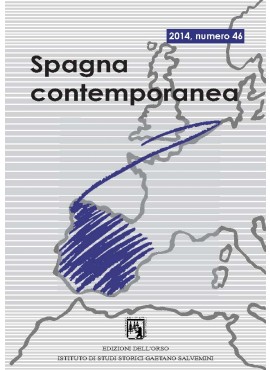1820, una revolución mediterránea. El impacto en España de los acontecimientos de Portugal, Italia y Grecia
Keywords:
1820, Revolution, Liberalism, 1812 Constitution, Internationalism, RestorationAbstract
1820, a Mediterranean revolution. The impact of Portuguese, Italian and Greek events on Spain
As early as five years after the end of the Congress of Vienna, the 1820 Spanish revolution was the first of the revolutionary cycles that overthrew the Restoration system. Its “peripheral” and Mediterranean character and the fact that only Greece, where the Spanish events were least influential, became independent, put it on a relatively secondary plan. The historians from the four countries where the major revolutionary movements operated — Spain, Portugal, Italy and Greece — were the only ones who focused on it, although, especially as regards Spain, less than it deserves. One of the most important features of this revolutionary cycle is its international character, expressed by the sympathy it raised amongst all liberals across the continent and in the solidarity shown by the liberals from the four countries. The press covered the events either with interest and enthusiasm or with fear, and the Austrian intervention on Italy caused significant commotion in Spain, which became the destination of political exiles, especially from Italy. In 1820, the Cortes approved the first asylum law in Spain.
Received: 10-03-2014
Downloads
Published
Issue
Section
License
Copyright (c) 2014 Istituto di studi storici Gaetano Salvemini, Torino

This work is licensed under a Creative Commons Attribution-NonCommercial-NoDerivatives 4.0 International License.



